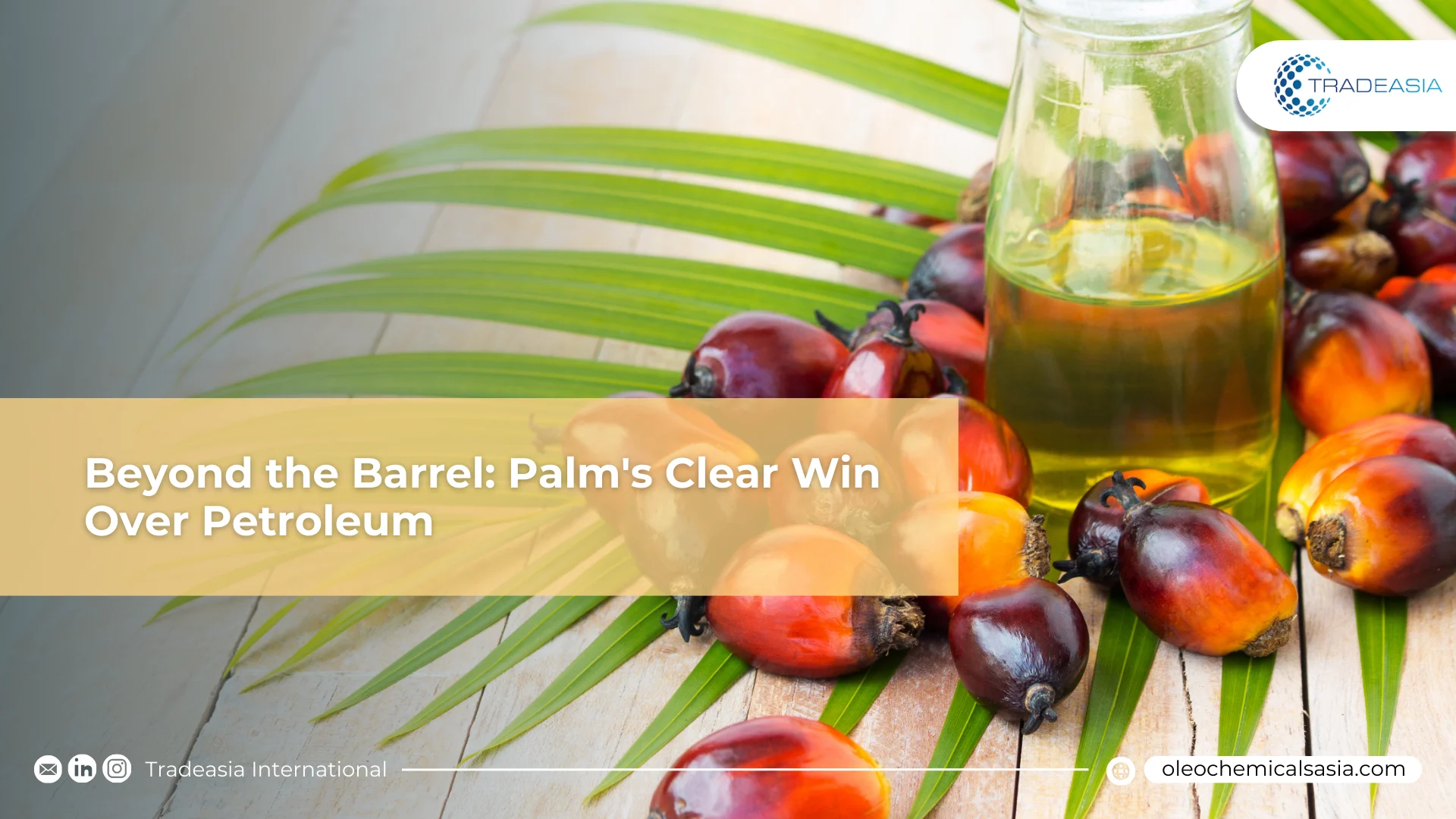Article
16 September 2025
A Data-Driven Look at the Battle for LMA's Core Feedstock
Palm Derivatives

Table of Content
- The Economics of a Green Transition
- The Corporate Mandate for a Decarbonized Supply Chain
Article
16 September 2025
Palm Derivatives

A profound shift is underway in the global chemical industry, as the economic and environmental logic of a bio-based economy becomes undeniable. This transition is powerfully demonstrated in the raw material sourcing for Lauryl Myristyl Alcohol, where natural oleochemicals, championed by Palm Kernel Oil (PKO), are decisively winning the battle against synthetic petrochemicals. The data shows this is no longer a future trend, but a present-day market reality.
This fundamental shift from petrochemicals to oleochemicals is creating both immense opportunities and significant challenges. As a leader in the sustainable palm derivative supply chain, Tradeasia International is at the forefront of this evolution. Our commitment is to not only participate in this green revolution but to help our partners lead it by providing the traceable, high-quality oleochemicals that the future demands.
The most telling evidence of this transition is found in market share. Today, more than 70% of all fatty alcohols produced worldwide are derived from natural, renewable sources, with projections showing this figure approaching 80% by 2035. This market dominance is supported by sound economics. Synthetic alcohol costs are directly chained to the volatile price of Brent crude, which has spent much of 2025 in a turbulent $75-$85 per barrel range. In contrast, PKO’s pricing, while dynamic, is rooted in the more forecastable cycles of global agriculture and regional energy policies.
The final, decisive factor in this battle is the global corporate mandate for sustainability. Producing LMA from PKO has a carbon footprint that is 40-60% lower than the synthetic petrochemical alternative. This is a game-changing metric for the downstream CPG and industrial companies that purchase these chemicals. With over 75% of Fortune 500 corporations now bound by aggressive ESG targets to reduce emissions across their supply chains, the choice is clear. They are systematically prioritizing suppliers who can provide ingredients with a verifiable green advantage, cementing PKO’s role as the indispensable feedstock for a sustainable future.
Sources:
Life Cycle Analysis of Oleochemical vs. Petrochemical Production - Journal of Cleaner Production
IEA Oil Market Report for Q3 2025 - International Energy Agency
We're committed to your privacy. Tradeasia uses the information you provide to us to contact you about our relevant content, products, and services. For more information, check out our privacy policy.
Leave a Comment